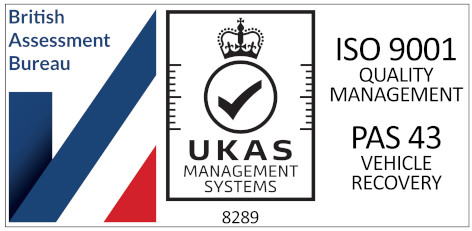
Roadside Assistance
Roadside Support

Flat tyres, flat batteries, punctures, running out of fuel, using the wrong fuel, losing your keys, locking your keys in the car… these things happen, but when you’re in the middle of a journey it can be particularly distressing. Our 24/7 roadside assistance team are available and ready to help with tyre inflation, tyre changes, fuel decontamination, jump starts, emergency vehicle access and vehicle repairs. Equipped with years of experience, drinking water, blankets and, if you’re especially lucky, biscuits, our friendly driver will arrive quickly thanks to GPS tracking, which lets our office staff know which of our fleet is closest to you and helps them to guide the rescue vehicle right to you.
In cases of fuel contamination it’s very important that you remove the keys from the ignition and don’t attempt to start the car. Doing so can result in further damage. If you need to move your car before we arrive put it in neutral and ask for help to push it to a safe place. It will be necessary to move you and your vehicle to a facility where the contaminated fuel can be drained and replaced. We dispose of all waste responsibly to minimise impact on the environment.
For emergency vehicle access, usually in cases where keys have been accidentally locked inside the car, you will need to complete a disclaimer before we can begin our lockout service due to legal implications, but this can be completed roadside and doesn’t take long.

Available in London, Surrey, Sussex, Essex and Kent, the FirstLine Recovery roadside assistance fleet are available to help motorists in cars, vans, motorbikes, motorhomes and lighter commercial vehicles. Call 24/7 for a prompt response from our efficient team and we’ll have you back on the road in no time.
Avoiding Flat Batteries:
- Your car battery charges as you drive, but otherwise naturally loses a small amount of charge constantly. Older batteries have a lower capacity to hold charge and will go flat more quickly. Regular longer journeys of 30 minutes to an hour help to keep your battery charged and healthy. A car that isn’t used for long periods of time or is only used for short journeys that don’t allow the battery to fully recharge is more likely to suffer from a flat battery.
- Avoid using onboard electrical devices such as lights and stereo while the car is not running.
- Remember to turn off all lights when you leave the car.
- Consider replacing older batteries.






